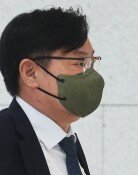Fairness matters in business
Fairness matters in business
Posted August. 26, 2017 07:03,
Updated August. 26, 2017 07:19
Shinsegae Group Vice Chairman Chung Yong-jin has blamed that only local complex shopping malls are forced to close on selective days, while IKEA, which sells overall household furnishings, opens every day. During the opening ceremony of Starfield Goyang on Thursday, Chung, looking determined, went on to criticize the current system with a precondition that “an entrepreneur must perform its work according to laws.” In other words, the new regulation requiring two mandatory holidays a month to complex shopping malls to protect local markets, taking effect from January 2018, will rather cause reverse discrimination to local companies.
IKEA is able to avoid execution of mandatory holidays as its business is registered as a furniture shopping center, not because IKEA is a foreign entity. However, in reality, IKEA sells food and beverage, toy and dishware in addition to furniture, seeming not much different from a complex shopping mall, and traffic is unbearably congested on every weekend. The truth is that IKEA is allowed to register as a furniture shopping center as the company is specialized in furniture. However, its local rivals may find it unfair. IKEA is obliged to close on selective days by the government from now on, it may harm Korea’s reputation as an unpredictable country with difficulty to continue business.
The regulatory system, only specific in Korea and not relevant in global settings, seems a major problem. Regulations, quite different from global standards, have been contributing to fall of both large and small and medium-sized companies in Korea, not to mention co-prosperity between them. As for the mandatory holidays for a complex shopping mall, out of total 32 shopping malls registered nationwide, only 14 shopping malls are owned by large corporations. Furthermore, the government is trying to legislate the system to designate suitable business for SMEs for shared growth, while the system has been pointed out that it violates the global trade standards. While global corporations are adopting themselves to a transition to the fourth industrial revolution by breaking down the existing barriers, the Korean government’s regulatory framework is strangling local businesses like a fence. In the meantime, ironically, local businesses have been demanded to stand against global entities.
Financial authorities, including the Ministry of Strategy and the Finance, Fair Trade Commission and the Financial Services Commission, reported Friday their new vision to achieve 3 percent range growth with new measures, such as innovation of the industry ecosystem, prohibition of unreasonable unit cost cut by large corporations and investment of 35.5 billion dollars on the fourth industrial revolution. Nothing has been mentioned about inappropriate regulatory systems. The government’s encouragement for business growth in the absence of communication with businesses will only be considered a hollow message.
Headline News
- Med professors announce intention to leave hospitals starting Thursday
- Bridge honoring Sgt. Moon Jae-sik unveiled in Pennsylvania
- Chief of Staff Chung tells presidential secretaries to stay away from politics
- US FTC bans noncompete agreements
- N. Korea launches cyberattacks on S. Korea's defense companies







